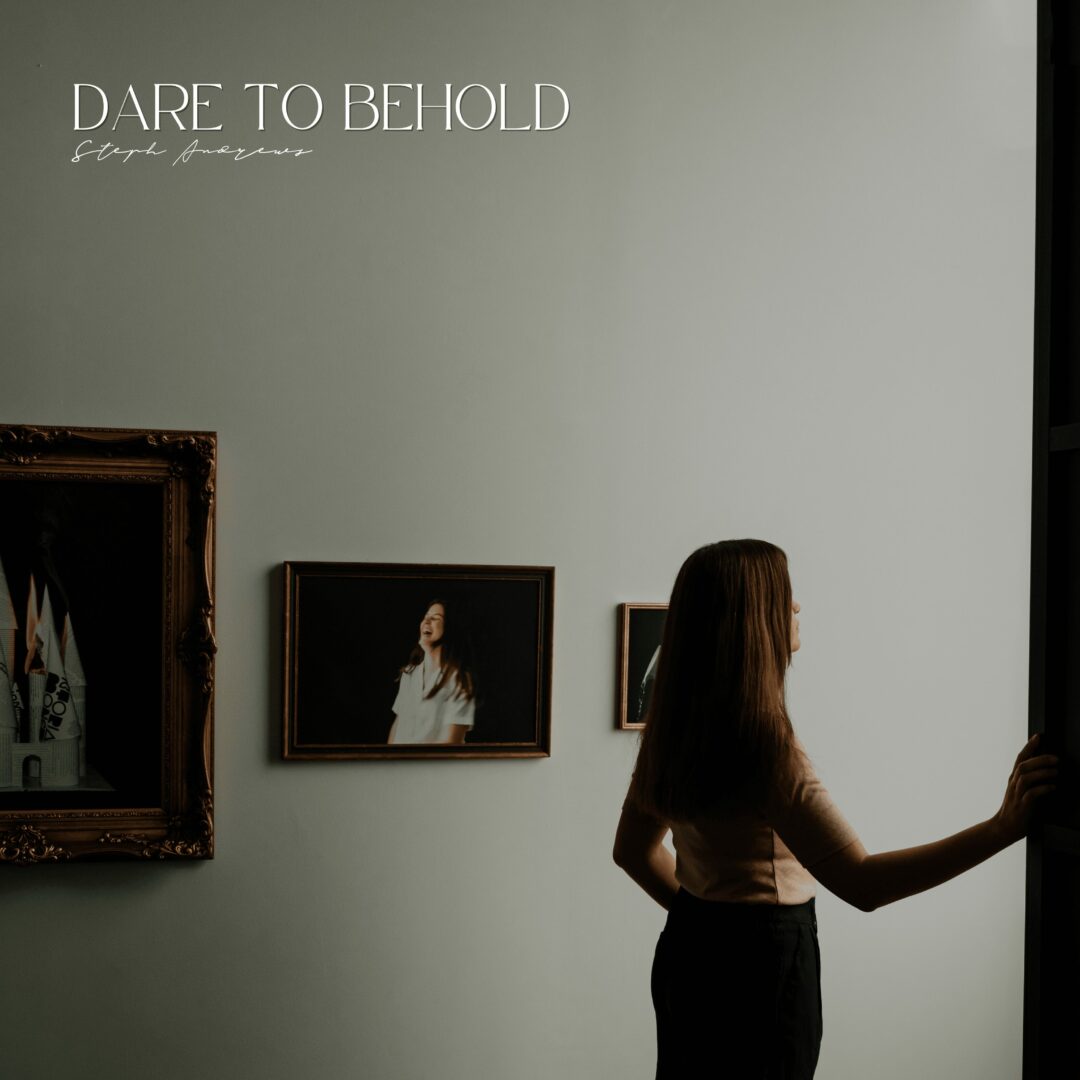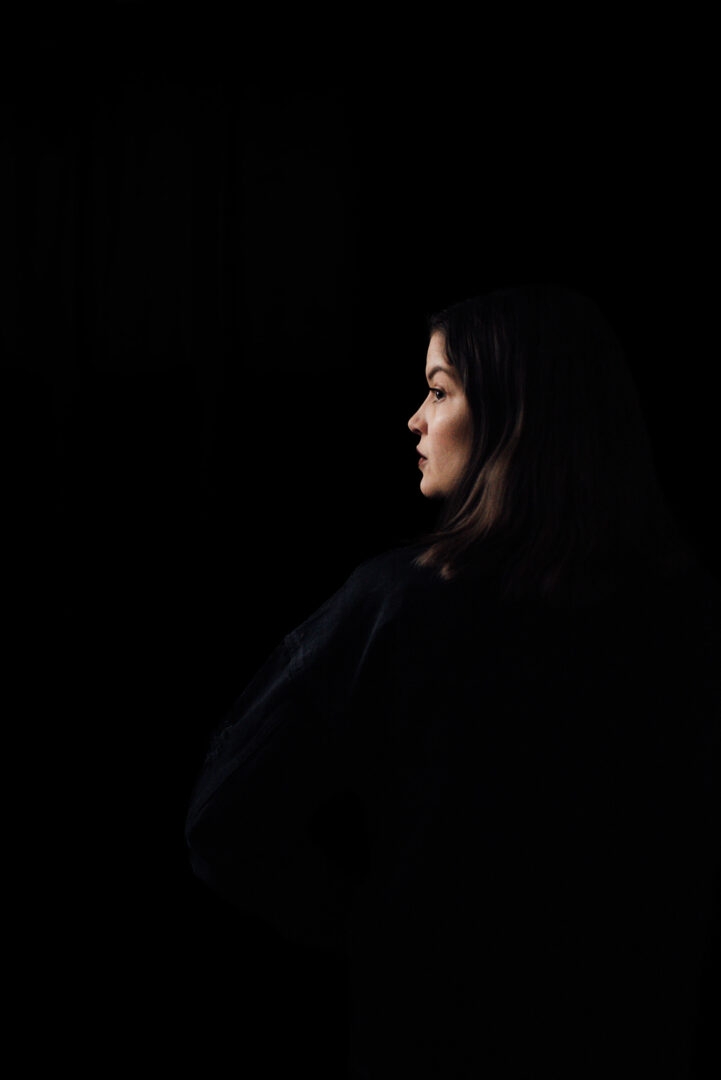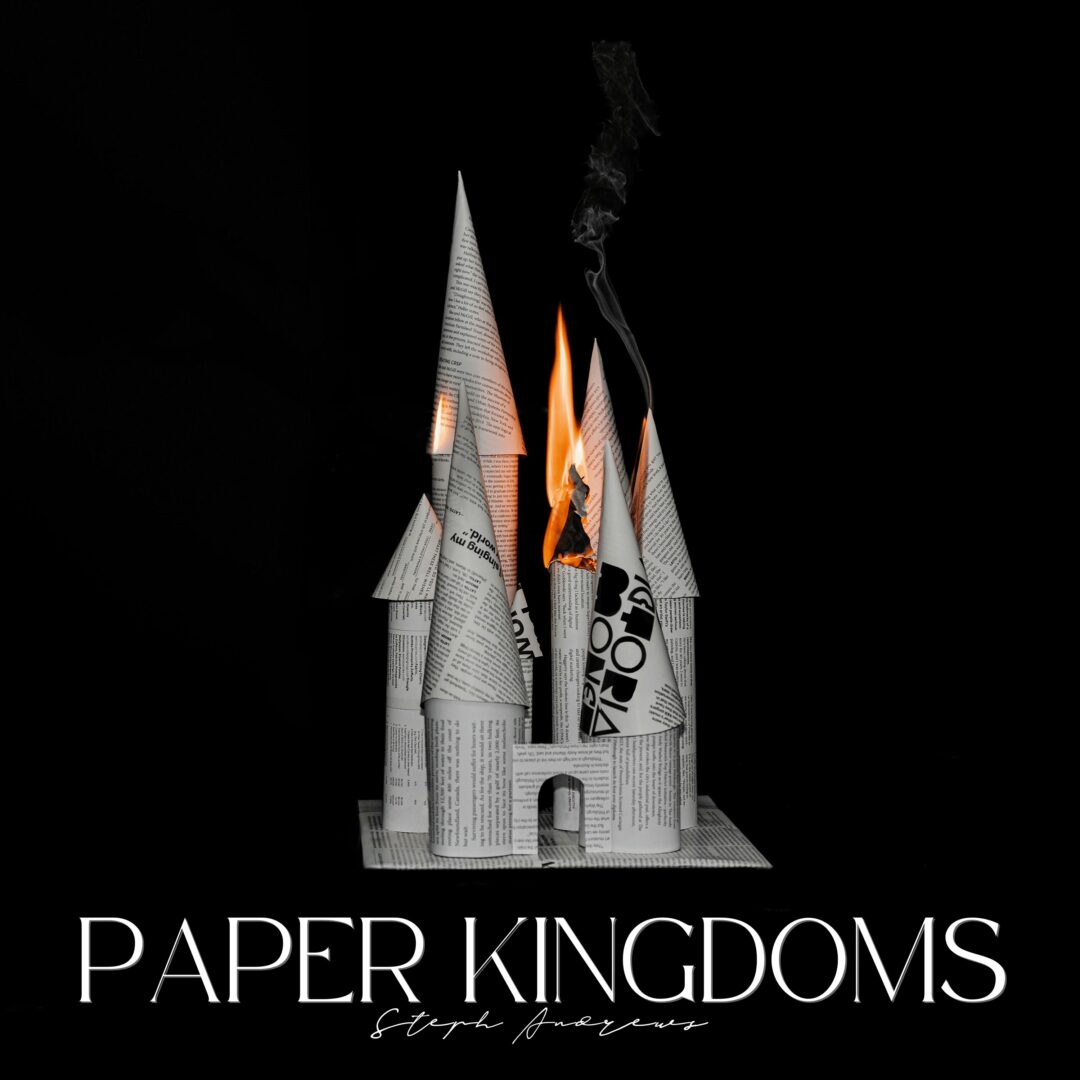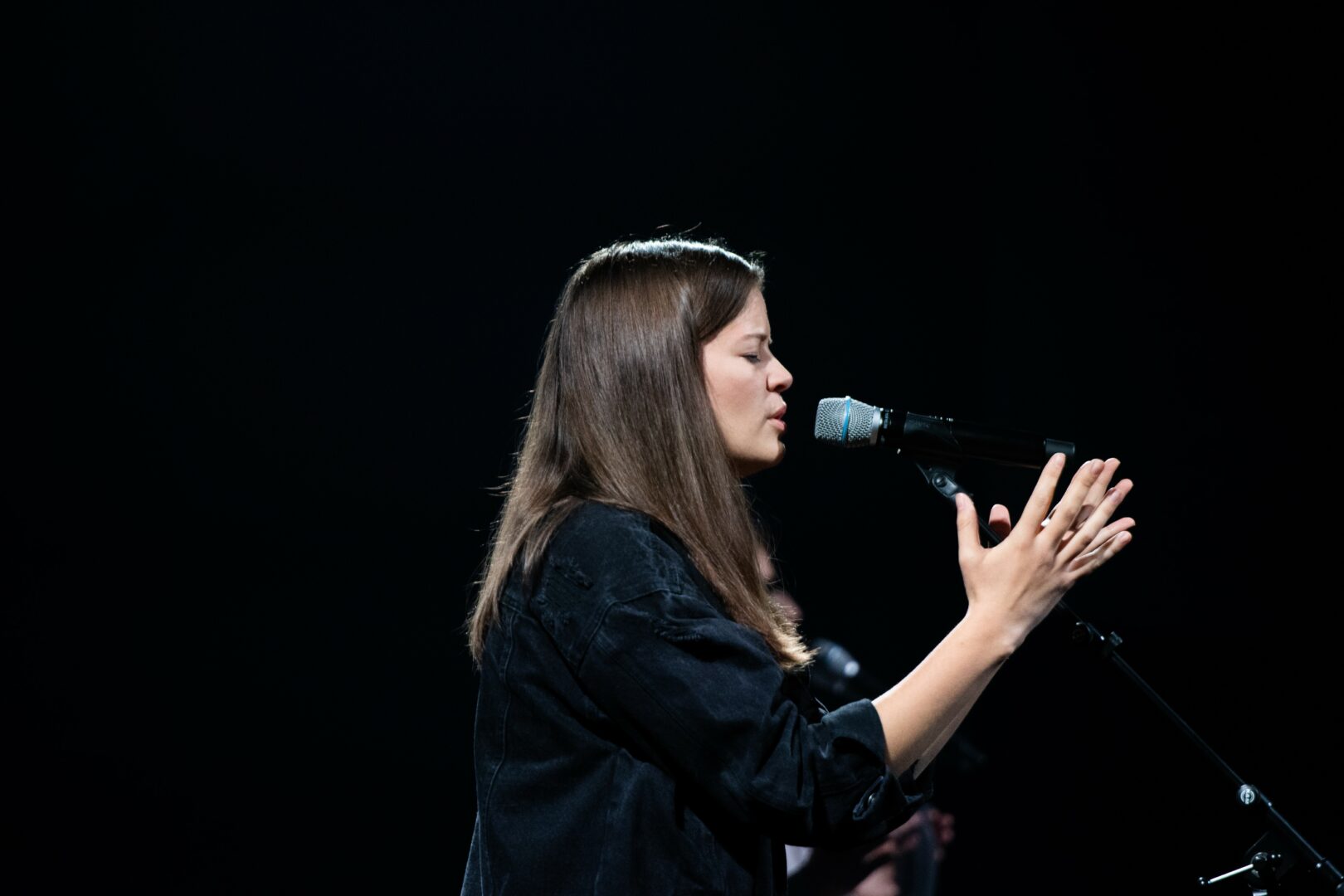We’re excited to introduce you to the always interesting and insightful Steph Andrews. We hope you’ll enjoy our conversation with Steph below.
Hi Steph, thank you so much for opening up with us about some important, but sometimes personal topics. One that really matters to us is overcoming Imposter Syndrome because we’ve seen how so many people are held back in life because of this and so we’d really appreciate hearing about how you overcame Imposter Syndrome.
A new venue with people you’ve never met before. A writing room with acclaimed writers. A songwriting workshop with publishers who are about to hear and critique YOUR song.
A voice whispers in your ear, “Who do you think you ARE?”
Anxiety creeps in, and now you’re focused on regulating your breathing instead of the creative assignment in front of you.
The Oxford Dictionary defines imposter syndrome as “the persistent inability to believe that one’s success is deserved or has been legitimately achieved as a result of one’s own efforts or skills.” Imposter Syndrome and anxiety defined most of the early years of my creative life. While I had previously thrived in contexts that were more structured (playing a role in a musical, singing other people’s songs, playing violin in orchestra), things took a turn when I started to branch out and make my own music.
I think even the most confident creatives have experienced this at some point in their journey. At the end of the day, we CARE a lot about the work we’re invested in, and ultimately we’d love if other people take notice too. We create because we want to fill the world with joy, meet people in the midst of their pain and suffering, and give language to experiences that we’re all grappling with. Caring deeply about the quality of our work and finding a place for it is simply a part of the process.
Things take a turn, however, when the fear of not being enough overtakes the focus and drive to DO the work we’re called to. I’m still in “imposter syndrome recovery,” but here are a few tools that have helped me overcome it:
1. Find your people.
Creating within community has absolutely changed the game for me. I previously felt like an imposter if I couldn’t write a solid song on my own. Now I know that working with others has both strengthened my gifts and complimented the weaker areas of my creative process, resulting in a better piece that I wouldn’t have made on my own. These friends are both encouraging AND honest, which has allowed me to discern which pieces of work have the highest quality and connect with my audience. For me, this looks like writing 50-60 songs for a project and then leaning on friends to help me determine the final tracklisting of my recent 13 track album.
2. Know your number.
Every creative field has a “hierarchy” and it’s important to know your place within it. Sometimes we feel like an imposter because we’re simply trying to push too far too fast. For example, we think of songwriters in a 1-7 scale, with 1 being the top professional writers and 7 being those just starting. I find myself somewhere between 3 and 4. If I was to walk into a room to write with a bunch of 1s, it would feel super intimidating. These people likely have a deadline and need to finish a polished song in 2-3 hours for a major artist. It’s good to want to grow in your craft, but pushing too far too fast could hurt you in the long run. Work diligently where you are, and make connections with people who are a step ahead and willing to teach you.
3. Give the haters a minute, but no more.
Spoiler alert: 100% of people will not like your work. It’s ok. At the end of the day, your work wasn’t made for everybody. Does it speak to your audience? More importantly, do you know your intended audience? This was hard for me at first. I wanted EVERYONE to like my music. However, I’ve found myself in a specific niche of Christian Pop music. It annoys some Christians because it’s not “positive enough” and annoys some pop fans because it’s “too Christian.” I’ve come to terms with this because I know the WHY and WHO behind the music I make. If you haven’t defined your creative vision and audience, the voice of the haters will rule your mind.
4. Delight in the work of your hands.
Sometimes we get so caught up in the process that we fail to stop and appreciate where we’ve come. Imposter Syndrome leads us to believe that any success has been a result of chance, but more than likely you worked HARD. You stayed up late and created, recreated, refined, and shared your very heart with the world. I recently released my second album called “Dare to Behold.” This project took more than 3 years and involved 15 other writers, 4 producers/engineers, and 2 photographers. This wasn’t an accident; it was the work of many creatives, a vision, and hard work. Don’t forget to sit back and truly ENJOY the work.
Whether you’re in your first battle against Imposter Syndrome or preparing yourself for a new creative project, I hope you find your people, enjoy this stage of the process, and delight in the work. It truly is an honor to wear the title of Creative, and I wish you joy in your work!

Appreciate the insights and wisdom. Before we dig deeper and ask you about the skills that matter and more, maybe you can tell our readers about yourself?
I am an independent Christian Artist & Songwriter, focused primarily on creating honest music about the tension between following God and living in a broken and often difficult world. I recently released my second album, “Dare to Behold,” which tells the story of encounter, struggle, and transformation. This work has led me to sing in many unexpected places including the Lincoln Memorial, a coffeehouse in Berlin, and my daughter’s school. Every month brings different opportunities to create music with new people, and I’m truly so excited for this stage in my creative journey.

Looking back, what do you think were the three qualities, skills, or areas of knowledge that were most impactful in your journey? What advice do you have for folks who are early in their journey in terms of how they can best develop or improve on these?
1. The BIGGEST thing I learned was to be teachable. I came into my specific field with more than a decade of knowledge, however, I still had so much to learn to be successful. Pride will absolutely cutoff relationships and opportunities. Everyone you collaborate with has something to offer. Maintain a posture of learning and humility, and you’ll go much further!
2. Experiment! When I first started making music, I had a very specific idea of the instrumentation and lyrical language I wanted to use. I’ve ventured into topics and sounds I wouldn’t have expected because I had the freedom to try new things. You might have a standard outline for the work that you create… but what if you stepped a little bit outside of the lines?
3. Appreciate where you are NOW. You may not be where you want to be in your journey, but you’ve worked hard to get to this point. If you’re showing up and doing the best work you know how to do TODAY, then delight in that! Comparison will kill progress. Be where you are now, and continue to put in the work to grow in the areas you want to develop.

What would you advise – going all in on your strengths or investing on areas where you aren’t as strong to be more well-rounded?
Honestly, it’s tempting to want to be seen as a solid 10 in all areas of our fields, but at the end of the day, I’d rather go all in on my strengths and partner with other people than waste time developing areas that’ll never be my main focus.
For example, there was a time in life when I showed up to rehearsals an hour before everyone else because I wanted to work on learning drum parts. Why? Didn’t I actually think I would one day play drums at an event? No. But wouldn’t it be more impressive if I could step in and play drums if needed?
I may be an independent artist, but in reality, I do all my best work within a team. I would rather write songs with other people than solo every time. I think it’s important to know what you bring to the table and find other people to collaborate with instead of wasting time developing areas in which you don’t need to be solely responsible. For example, when I walk into a songwriting session, I’m going to lean on every tool in my belt to bring a really cool song concept with a memorable melody, but I’m going to surround myself with a great producer and excellent lyricist to bring it to life. My favorite songs in my catalog are ones I’ve written with other people.
It might seem scary or lazy to admit a weakness in an area, but developing strengths wins for me every time.
Contact Info:
- Website: https://www.stephandrews.com
- Instagram: @itsstephandrews
- Youtube: https://www.youtube.com/@StephAndrews
- Other: Spotify: https://open.spotify.com/artist/4FnTMVmIxn0KHS5IplpaLD?si=aMSMoohLSz681OpPXvrg5g


so if you or someone you know deserves recognition please let us know here.




